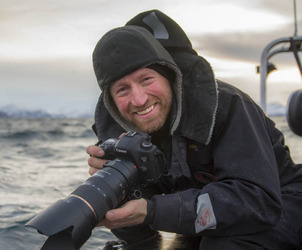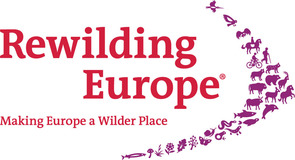Winner: Audun Rikardsen - Norway

Audun Rikardsen grew up in a little fishing village in the north of Norway, and has always had a special fascination for the Nordic coasts; their culture and wildlife both above and under the ocean's surface. He is a professor of biology at Tromsø University, and to make the best use of his free time, most of his photographs have originated from around his local area. Originally, he worked as a fish biologist, but today his research focuses on the behaviour of whales. His grandfather was a whaler and so his interest for marine mammals was kindled from an early age. He often combines his photography with his scientific work, thus benefiting from his knowledge of local wildlife and habitat.
Audun’s photography projects document the dramatic changes of the marine eco-systems in his home region, the onset of which began a few years ago during the winter months. To depict the world above and below the water's surface he has developed a unique camera system including a special underwater housing and powerful flash system that produces good results in the poor light conditions of the polar winter. These images originate from the past two years during which he spent almost 100 days on and in the water.
Project: The polar winter feeding feast
As a result of climate change and ocean global warming, the habitat of many marine organisms shifts northwards, resulting in massive marine ecosystem changes. Since 2011 a large proportion of the North Atlantic herring population, for example, have been migrating for reasons unknown to certain fjords in the north of Norway, where they overwinter for four months before moving to more southern regions to spawn. Very large schools of whales, sea birds, fishermen and tourists follow in their wake to get their share of the sudden abundance.
The fishing fleet catch about 20 000 tons of herring within this rather limited space. This may appear to be a significant amount, but it is probably only the half of what the whales catch in the same period of time.
Some of the fishermen use the whales to locate shoals of herring. Some whales, on the other hand, have learnt to interpret the specific sound of the nets being hauled up and approach the boats hoping to get a "free meal". On the face of it, a win-win situation for everybody, but some of the whales try to get fish directly from the nets, creating potentially very dangerous situations for both parties. All this has recently led to heated discussions concerning a fishing quota for herring, and the reduction of potential hazards at the point where humans and whales connect, whereby some fairly drastic measures have been demanded. Dangerous situations occur on a regular basis, for example when whales become tangled in fishing nets or submarine cables. Failing rescue by the coast guard or volunteer groups, they often sustain serious, sometimes fatal, injuries. So, what the region needs is good management that benefits both fishing activities and the whales.











